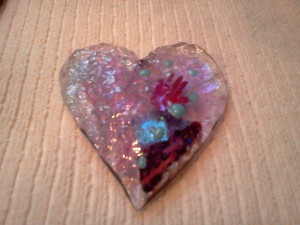Do you find yourself taking care of others and feeling frustrated? Do you worry about how others are going to make it if you do not help them? Do you feel drained by how much you do for others?
If you answered yes to those questions, you might be a codependent. My definition of a codependent is when you take care of others at the expense of yourself. This topic was written about extensively by Melody Beattie in the book Codependent No More and if you want a real thorough look at the topic you should pick up the book.
I find there is a fine line between helping another and codependence. Here is a quick way to tell the difference: Codependence will leave you drained, frustrated and angry; while helping for helping sake will lead you to feel uplifted. Here are some other clues to see if you are codependent:
- You have resentment that the person you are helping should be doing more for themselves.
- You blame them for not being different, “after all that I have done.”
- You worry about others more than they worry about themselves.
If you answered yes to any of the above questions, you might be engaging in codependence. If so, start by asking yourself the following questions when you consider taking care of someone else:
1. What do I need?
2. What is MY heart’s desire?
3. How can I be helpful to another and not neglect myself in the process?
4. What do I get out of being codependent?
These questions are important, because they can help you get back in touch with your needs and wants rather than focusing on what someone else needs and wants. Truthfully, you can only take care of yourself, not anyone else. During this process you might find you feel a strong pull to help the other person. Allow yourself to hold back and give the other person an opportunity to do it for themselves (even if it might lead to “failure”). There is a greater satisfaction completing a task (no matter the results) themself as opposed to someone else doing it for them.
My motto is, “I have to be good to myself, so I can be helpful to another.” Is this selfish? I don’t think so. Is it emotionally healthy? I think yes. The lesson is to take care of myself and allow others to take care of themselves.
Kim McLaughlin, MA is a licensed Marriage and Family Therapist and a Motivational Coach. She specializes in counseling people with binge eating, emotional eating and eating disorders. She is a Certified Intuitive Eating Counselor. You can contact Kim at 916-847-8053 or email her at kimmclaughlinmft@gmail.com.
Kim McLaughlin has been identified as writing one of the Top 50 Blogs about Emotional Eating by the Institute on Emotional Eating. Sign up for her free Special Report: Top Strategies to End Binge Eating here or visit her website at www.feedyoursoulunlimited.com.


